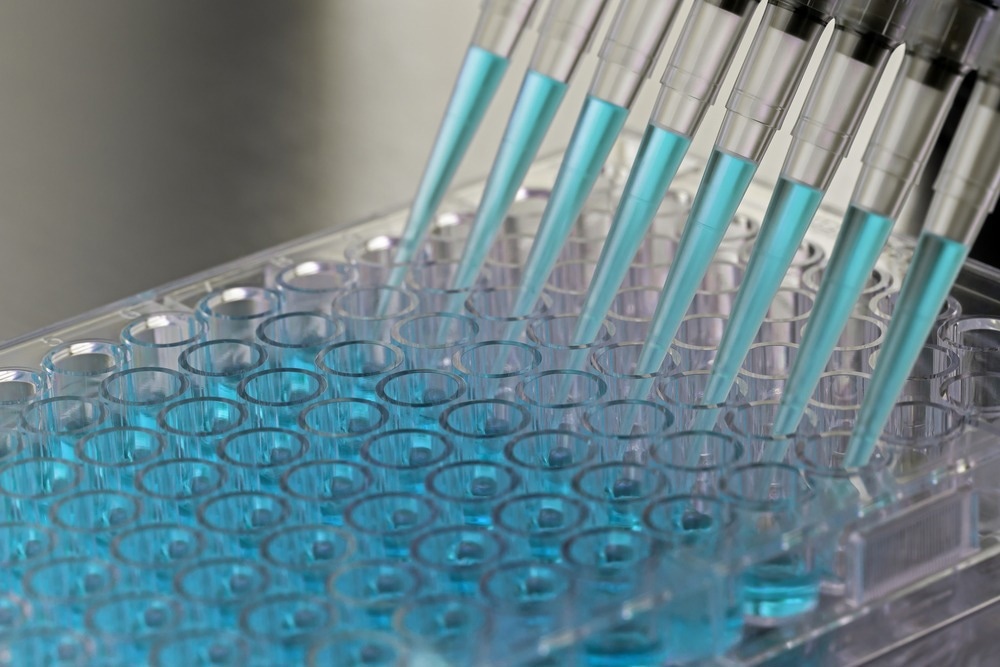Why do we need to discover and develop new drugs?
Our understanding of the human body and its ailments has rapidly progressed since the dawn of modern medicine. Yet we still spend more than $200 billion annually on drug discovery and development. While we have cured many illnesses and learned how to treat and manage others, modern medicine still faces several challenges.
Many people develop diseases that do not respond to conventional therapy, for which there is a need for novel therapeutic approaches tailored to the individual. Additionally, there is the growing problem of drug resistance, particularly antibiotic resistance, where the drugs that were effective decades ago are now less potent against infectious diseases. Finally, as is the case with the COVID-19 pandemic, new diseases are emerging all the time for which we do not have drugs. Each of these scenarios requires us to continue discovering and developing new drugs.
 Drug Discovery and Development" />
Drug Discovery and Development" />
Image Credit: metamorworks/Shutterstock.com
How does the drug discovery and development process work?
Drug discovery and development involve numerous stages and years of hard work. Assays play an important role in many of these steps. Usually, developing a new drug begins with several years of basic research occurring in academia that generates data to form a hypothesis about how and why a new drug should be developed. This is followed by a lead discovery stage, at the end of which a candidate molecule is selected. This candidate then enters pre-clinical development, if successful, it then moves onto clinical development, and if successful here, the drug will be put forward for market approval (e.g., FDA approval, EMA approval).
Assays are particularly important in the lead discovery phase of the drug discovery and development process.
How do assays facilitate drug discovery and development?
The lead discovery phase of the drug discovery and development process begins with target validation, where a potential target is identified and validated via genetic, cellular, and in vivo experimental models. At this stage, biochemical and cellular assays are developed to search for the small molecule modulators of the target protein.
Following the target validation process is the hit discovery process. This is when compound screening assays are developed. The definition of a 'hit' molecule is not standardized across research laboratories; however, it generally refers to identifying a compound that displays the desired activity in a compound screen and whose activity is then confirmed again upon resting.
High throughput screening (HTS) is often used at this stage, where an entire compound library is compared directly against the target drug. Sometimes, a more complex assay system is used, a cell-based assay, for example, where the activity is dependent on the target but also requires additional secondary assays to identify the site of action on the compound.
Usually, the lead discovery phase consists of numerous activities and starts with the development of biological assays that will be used to identify molecules with activity at the drug target. These assays are then used to screen compound libraries, where molecules of interest can are identified. Hits generated by the screening process are used as leads for the next step, which uses chemistry to increase the potency of the compound. Also, in the lead discovery phase, cell-based assays are used to screen phase molecules to predict the likely efficacy and safety of the compound in its hypothetical use.
How to develop an assay
Over the years, several assay formats have been developed to support compound screening. The decision as to which format to use depends on numerous factors, such as the biology of the drug target protein, the experience of the scientists, and the equipment available in the laboratory.
Regardless of which assay format is used, scientists consider the following factors when developing their assay: the pharmacological relevance of the assay, reproducibility of the assay, costs, quality, and the effect of compounds in the assay.

Image Credit: Hakat/Shutterstock.com
Can AI boost the power of assays?
We have seen that assays are vital to the drug discovery and development process. Without them, we would be unable to carry out the essential steps of target validation and compound screening to ensure successful lead discovery. While vital, assays have certainly not yet reached their full potential. Recently, scientists have developed advanced models that incorporate artificial intelligence (AI) and deep learning with high-throughput procedures that have the potential to speed up and enhance the accuracy of these types of assays.
Given that the drug discovery and development process is lengthy and expensive - it was recently estimated that the average cost of bringing a new drug to market, from discovery, through development and clinical trials, to market approval, is roughly between $1 to 3 billion, it is unsurprising that AI is being looked to reduce the time and costs associated with the process. In the coming years, we will likely see further developments in the use of AI in assays within the field of drug discovery and development.
Continue Reading: Adopting AI to Boost Drug Discovery
Sources:
- Assay development. Nat Rev Drug Discov 6, 681 (2007). https://doi.org/10.1038/nrd2383
- Hughes, J.P. et al. (2011) "Principles of early drug discovery," British Journal of Pharmacology, 162(6), pp. 1239–1249. Available at: https://doi.org/10.1111/j.1476-5381.2010.01127.x.
- Fleming, N. (2018) "How artificial intelligence is changing drug discovery," Nature, 557(7707). Available at: https://doi.org/10.1038/d41586-018-05267-x.
- Mohs, R.C. and Greig, N.H. (2017) "Drug discovery and development: Role of Basic Biological Research," Alzheimer's & Dementia: Translational Research & Clinical Interventions, 3(4), pp. 651–657. Available at: https://doi.org/10.1016/j.trci.2017.10.005.
Further Reading